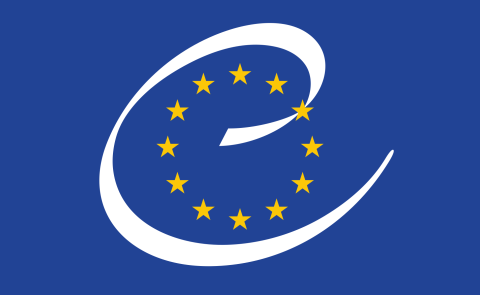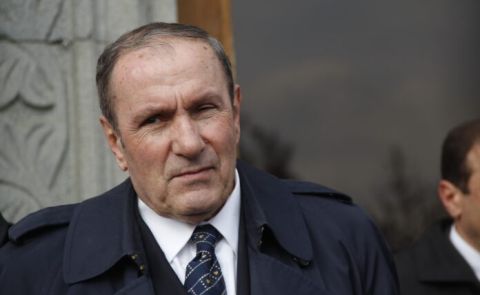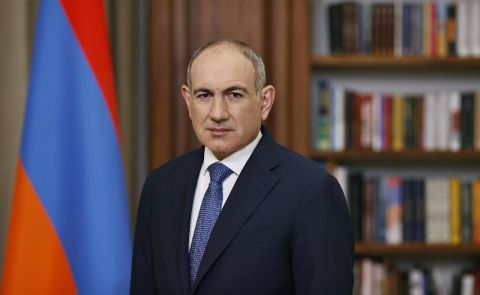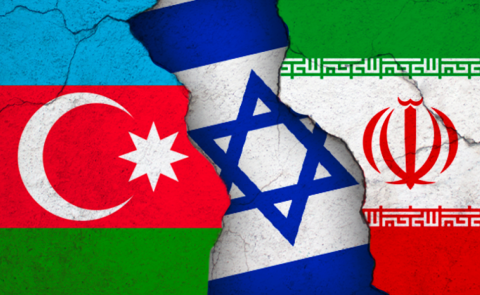
Armenian Government and Church Face Growing Tensions Over Leadership Allegations

On June 9, Armenian Prime Minister Nikol Pashinyan publicly accused Catholicos Garegin II of violating his vow of celibacy and fathering a child.
In a Facebook post, Pashinyan asserted the claim as fact and warned that if Garegin II denied it, he would present evidence "in the appropriate format." The Prime Minister argued that under the canon law of the Armenian Apostolic Church (AAC), Garegin II should never have been ordained as bishop, archbishop, or elected Catholicos. Pashinyan called for Ktrich Nersisyan to vacate the Patriarchal quarters and urged the church’s faithful to peacefully advocate for the election of a new Catholicos, whose personal integrity would be verified before appointment.
Responding to the situation, David Khudatyan, Minister of Territorial Administration and Infrastructure, rejected claims that the government was targeting the AAC. Speaking to journalists in the National Assembly on June 9, Khudatyan noted that while some recent polls indicated higher support for the church than for the government, this did not make the AAC a political opponent. "As long as the Church has not declared that it is ready to stand as a party in the 2026 elections, it will not be considered our political opponent," Khudatyan stated.
He acknowledged, however, that certain high-ranking church officials had recently become involved in politics. As a private citizen and Christian, Khudatyan expressed concern over the alleged violation of one of the church’s central canons. He emphasized that if the claim were true, it should carry consequences but added that he had not participated in any internal government discussions concerning the matter.
Former Vice Speaker Claims Pashinyan Is Attacking Armenian Apostolic Church and Catholicos; Calls for Vote of No Confidence
On June 9, Eduard Sharmazanov, former Vice Speaker of the Armenian National Assembly and Spokesman for the Republican Party of Armenia (RPA), accused Prime Minister Nikol Pashinyan of attempting to dismantle the foundations of Armenian national identity and the Third Republic of Armenia.
Sharmazanov claimed that Pashinyan and his government had launched a systematic attack on the Armenian Apostolic Church and its Catholicos over the past week, framing it as an assault on Armenian history, identity, and nationhood. He urged every Armenian citizen to stand with the Catholicos and the Church, accusing Pashinyan of seeking to transform the Church into a sectarian institution akin to a new Pavlikian movement. According to Sharmazanov, any citizen supporting Pashinyan’s stance effectively aligns with the agendas of Azerbaijan, Turkey, and the figure he referred to as “Pashazada.”
Notably, the Pavlikian movement was a significant religious and social reform movement that emerged in the 7th century within the Byzantine Empire, particularly in Armenia and parts of Asia Minor. The Pavlikians were a Christian sect that combined dualistic and Gnostic elements, rejecting many orthodox Christian doctrines and practices. They emphasized strict adherence to the Bible and rejected the established church hierarchy, sacraments, and the veneration of icons, which they considered idolatry. The movement advocated for a return to a purer form of Christianity based on Scripture alone, opposing what they saw as corruption in the official church. They also promoted communal living and rejected the wealth and power of the clergy.
See Also


Armenia Strengthens Ties with Council of Europe

Former Armenian President Labels Pashinyan a Traitor and Blasphemer

Pashinyan Addresses Key Issues on Church, National Future, and Fund Allegations

Azerbaijan Calls for 'Dialogue and Diplomatic Resolution' Between Israel and Iran

